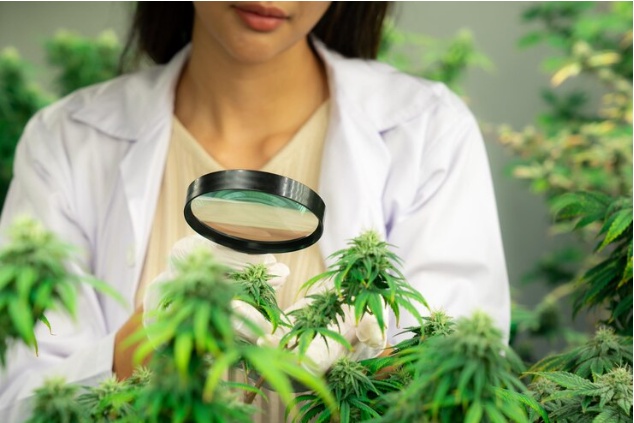In recent years, medical marijuana has emerged as a topic of significant interest and debate. Understanding its benefits and risks becomes crucial as more states and countries legalize its use for medicinal purposes. This article aims to provide a comprehensive guide to medical marijuana education, offering insights into its potential advantages, associated risks, and the importance of informed decision-making. At Releaf Specialists, we recognize the importance of education in this evolving landscape and are dedicated to providing accurate and reliable information to empower individuals seeking to explore medical marijuana as a treatment option.
Understanding Medical Marijuana
Medical marijuana, often referred to as medical cannabis, is derived from the Cannabis sativa or Cannabis indica plant species. Unlike recreational marijuana, which is used for its psychoactive effects, medical marijuana is utilized for its therapeutic properties in treating various medical conditions. The primary active compounds in marijuana are tetrahydrocannabinol (THC) and cannabidiol (CBD), each with distinct effects on the body.
THC is responsible for the euphoric "high" associated with marijuana use, while CBD offers therapeutic benefits without the psychoactive effects. When consumed, these cannabinoids interact with the body's endocannabinoid system, a complex network of receptors and neurotransmitters involved in regulating various physiological processes, including pain perception, mood, appetite, and immune function.
Benefits of Medical Marijuana
The potential benefits of medical marijuana span a wide range of medical conditions, from chronic pain and inflammation to neurological disorders and mental health conditions. Numerous studies have demonstrated the efficacy of medical marijuana in alleviating symptoms and improving the quality of life for patients suffering from conditions such as:
Chronic pain: Medical marijuana has shown promise in managing chronic pain associated with conditions such as arthritis, fibromyalgia, and multiple sclerosis.
Epilepsy: CBD-based medications have been approved by the FDA for the treatment of rare forms of epilepsy, such as Dravet syndrome and Lennox-Gastaut syndrome.
Anxiety and depression: Some patients find relief from symptoms of anxiety and depression with the use of medical marijuana, although further research is needed to understand its long-term effects.
Testimonials from patients and healthcare providers further underscore the positive impact of medical marijuana in treating these conditions, highlighting its potential as a valuable therapeutic option.
Risks and Considerations
While medical marijuana offers promising benefits, it's essential to acknowledge and address potential risks associated with its use. Common side effects of medical marijuana may include dizziness, dry mouth, impaired cognitive function, and in some cases, increased heart rate and anxiety. Additionally, long-term use of marijuana may lead to dependency and potential adverse effects on mental health, particularly in adolescents and individuals with a predisposition to psychiatric disorders.
Legal considerations also play a significant role in the use of medical marijuana, as regulations vary widely between states and countries. Patients and caregivers must familiarize themselves with local laws and regulations governing the use, possession, and cultivation of medical marijuana to avoid legal repercussions.
Consultation with healthcare professionals is paramount before initiating medical marijuana treatment, as they can provide personalized guidance based on individual medical history, symptoms, and treatment goals. Healthcare providers can offer valuable insights into dosage, administration methods, potential drug interactions, and monitoring for adverse effects, ensuring the safe and effective use of medical marijuana.
The Role of Education
Education plays a crucial role in empowering patients, caregivers, and healthcare providers to make informed decisions about medical marijuana use. By providing accurate and up-to-date information on its benefits, risks, and legal considerations, education helps dispel myths and misconceptions surrounding medical marijuana, fostering a more nuanced understanding of its therapeutic potential.
At Releaf Specialists, we are committed to delivering comprehensive educational resources and services to support individuals navigating the complexities of medical marijuana. Our team of experts offers personalized consultations, educational seminars, and informational materials designed to empower individuals with the knowledge and confidence to explore medical marijuana as a treatment option.
Frequently Asked Questions (FAQ)
Q: Is medical marijuana legal?
A: The legality of medical marijuana varies by jurisdiction. While some states and countries have legalized its use for medical purposes, others maintain strict regulations or prohibit it entirely. Patients should familiarize themselves with local laws and regulations before pursuing medical marijuana treatment.
Q: What conditions can be treated with medical marijuana?
A: Medical marijuana has shown efficacy in treating a wide range of conditions, including chronic pain, epilepsy, multiple sclerosis, Parkinson's disease, and PTSD, among others. However, healthcare professionals should guide its use and tailor it to individual needs.
Q: What are the different administration methods for medical marijuana?
A: Medical marijuana can be consumed in various forms, including smoking, vaporization, oral ingestion (edibles), sublingual administration (tinctures), and topical application (creams, lotions). Each method offers unique benefits and considerations, and patients should consult with healthcare providers to determine the most suitable approach.
Q: Are there any potential side effects of medical marijuana?
A: Common side effects of medical marijuana may include dizziness, dry mouth, fatigue, impaired cognitive function, and in some cases, increased heart rate and anxiety. It's essential to monitor for adverse effects and adjust treatment as needed under the guidance of healthcare professionals.
Conclusion:
In conclusion, medical marijuana education is essential for individuals seeking to explore its benefits as a treatment option. Patients, caregivers, and healthcare providers can make informed decisions that prioritize safety and efficacy by understanding the potential advantages, associated risks, and legal considerations. At Releaf Specialists, we are dedicated to providing comprehensive educational resources and personalized support to empower individuals on their medical marijuana journey. We invite you to learn more about our services and join us in navigating the complexities of medical marijuana with confidence and clarity.
Call to Action:
Visit Releaf Specialists' website today to access our educational resources, schedule a consultation, or learn more about how we can support you on your medical marijuana journey. Take the first step towards informed decision-making and discover the potential of medical marijuana as a safe and effective treatment option.


No comments yet